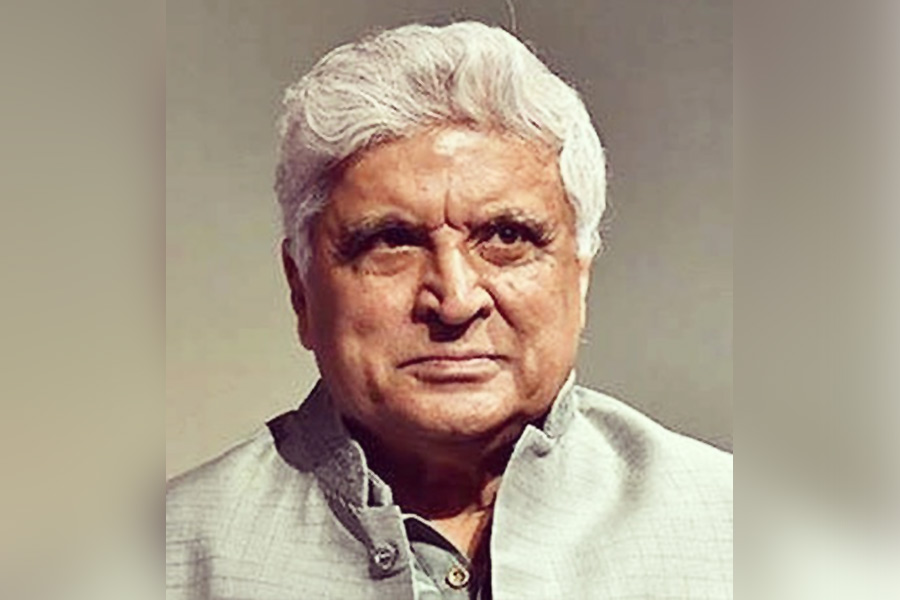Time passes “so quietly and quickly”, lyricist-scriptwriter Javed Akhtar recalled fondly as he looked back at “Deewaar”, his blockbuster with Salim Khan that released 50 years ago this day.
Salim-Javed, as the two were known at the time, gave Hindi cinema some of its biggest hits but the Yash Chopra-directed "Deewaar", starring Amitabh Bachchan and Shashi Kapoor, holds a special place. In the same year in August, the duo delivered another blockbuster in "Sholay".
" 'Deewaar' was released on 21st January 1975. Theek pachaas saal pehle (exactly 50 years back). How time passes so quietly and so quickly. It is happening all the time but remains a wonder," wrote the lyricist, who celebrated his 80th birthday recently.
The film, also starring Nirupa Roy, Neetu Singh and Parveen Babi, has stayed in public consciousness through the decades and its dialogues like "mere paas maa hai" and "Davar sahab, main aaj bhi phenke hue paise nahi uthata" are still oft remembered punch lines.
"Deewaar" revolved around two impoverished brothers struggling to survive in the slums of Mumbai. When they grow up, the elder brother Vijay (Bachchan) turns to crime while the younger one Ravi (Kapoor) becomes an honest police officer.
In the Prime Video documentary series "Angry Young Men", which released last year, Akhtar spoke about how they struggled to crack the climax of the film though they had the perfect script.
"People say 'Deewaar' has a perfect screenplay. We wrote it in 18 days from a small storyline. Then I wrote the dialogue in about 20 days," said Akhtar.
But they were yet to nail 'the end', said Khan.
"Once the script was completed, we knew we hadn't cracked the climax. So Javed and I completed it, sitting on the parapet nearby (his Bandra house).
"Then we went straight to Yash Chopra's house and narrated it. For almost five minutes there was complete silence," Khan recalled in the docu series.
Salim-Javed, who also co-created the 'Angry Young Man' phenomenon with Bachchan's Vijay in 1973's "Zanjeer", film historians and analysts say, had their finger on the pulse of the country with movies that underscored the deep seated disappointment in masses.
But they were "unaware of all this" while writing, Akhtar said in the documentary.
"Nor did we think our stories had sociopolitical relevance. And it's good. I'm very happy that we were innocent about it. Because we were part of that same society, the same world, and we were breathing the same air.
"Without knowing, we were in sync with the rest of the people. But is it really a coincidence that in 1973, we created a vigilante (Vijay from 'Zanjeer') and in 1975, India faced the Emergency? Are they linked or not?" he said in "Angry Young Men".
In the docu series, Bachchan recounted watching the epic temple scene at the premiere night of "Deewaar" in which his character Vijay, who grows up to become an atheist, finds himself in front of god to pray for his ailing mother.
And the opening line goes: "Aaj khush toh bohot honge tum." "I do remember the premiere of 'Deewaar' and there was actually a snigger and a gentle laughter in the audience. That was so unexpected and they thought it was some kind of a joke. But within a couple of seconds after that, they just froze," Bachchan said.
For many years, the screenplay of "Deewaar" was taught as the perfect screenplay at Pune's Film and Television Institute of India.
In 1976, Salim-Javed won all Filmfare Awards in the writing categories -- best story, best dialogue and best screenplay -- for "Deewaar".
Except for the headline, this story has not been edited by The Telegraph Online staff and has been published from a syndicated feed.










